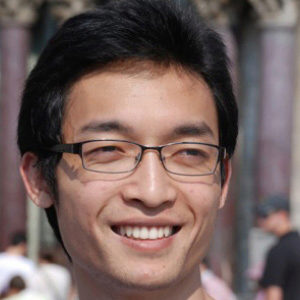 |
| Prof. Yongxin Chen |
Professor Yongxin Chen has been selected to receive a National Science Foundation CAREER Award to support his project, "Towards a Principled Framework for the Modeling and Control of Non-equilibrium Thermodynamic Systems."
The five-year, $500,000 grant will support Chen's development of a unified theoretical framework for understanding non-equilibrium thermodynamics - a characteristic that impacts the efficiency, power, and performance of small systems such as micro-engines. The framework he develops now will provide a foundational component for future research in minuscule actuators for robots.
"In the future, if we want to build a robot that can move fluidly, like a human, we will need to understand and be able to design as well as control the many small engines that drive motion," he said. "Each cell in our body is like a small engine, so you can imagine there are many micro-actuators or engines to consider. In large engines, like in your car, we have the Carnot principle, a celebrated result based on equilibrium thermodynamics, that tells us a lot about the engine's efficiency. But we can't apply that principle to a small engine."
One of the key differences between these two engines is thermodynamic fluctuation. In larger systems, tiny fluctuations don't impact the thermodynamic equilibrium, but in the tiny actuators that Chen and other robotics researchers want to construct, they have a greater impact.
"We want to be able to investigate the behavior of a molecular machines - to know what design principles will impact their power, their efficiency, their failure," says Chen. "Once we are able to predictably model them, we want to establish a design framework for developing small-scale, really micro-scale, engines."
A member of the Aerospace Engineering faculty since 2018, Yongxin Chen previously served as a post-doc at the Memorial Sloan Kettering Cancer Center and was an assistant professor in the department of electrical and computer engineering at Iowa State University. His research interests cover a broad spectrum of topics within the areas of control, machine learning and robotics.